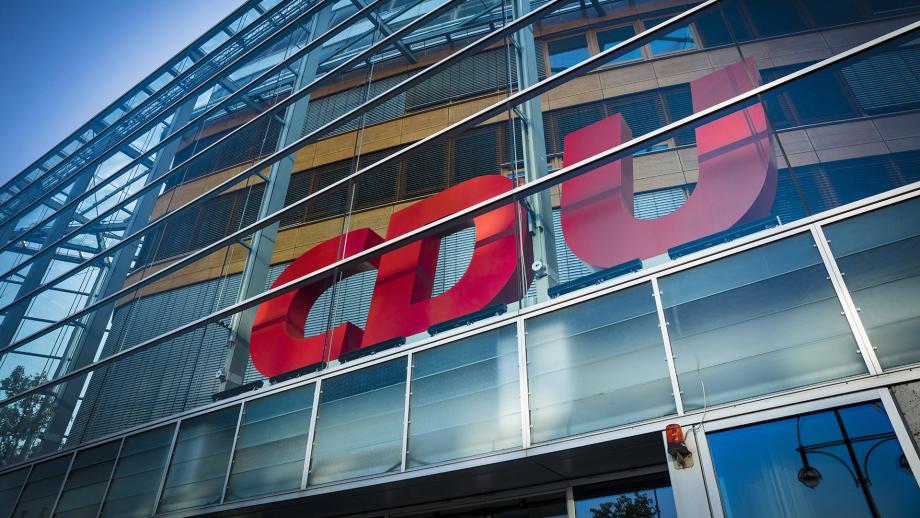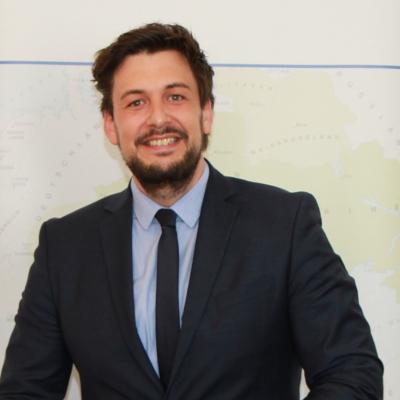What can we expect from the new chairman of the CDU in Germany?

During the virtual party convention on Saturday 16. January 2021 Armin Laschet, the Prime Minister of Germany’s most populous Federal State Nordrhein-Westfalen (NRW), became the new head of the Christian Democratic Union (CDU), ending an uncertainty within the party leadership of almost one year. He was elected by with 521 to 466 votes and beat Friedrich Merz, an influential figure in the CDU who represents the more conservative wing within the party and Norbert Röttgen, chairman of the Bundestag's Committee on Foreign Affairs. Merz was also again one of the three candidates for the chairmanship, with Norbert Röttgen being the third.
A rather peculiar set of choice as all three candidates were born in NRW (Laschet 1961, Röttgen 1965, Merz 1955), are male, studied law amongst others during the 1980s at Bonn University, have been awarded a scholarship by the Konrad-Adenauer Foundation during their studies and are Catholics. While Merz won the first round with 385 votes, the second round became necessary as none reached the absolute majority. Laschet could increase his share from 380 and was subsequently elected with 521 to 466 votes. Röttgen has received 224 votes and was therefore eliminated for the run-off.
For what it looks like now, the first time in more than two decades, the CDU party will be led by a male again. Even before this decision, it was almost certain that the biggest member state in the EU will also have a male Chancellor after the parliamentary elections in September 2021. Angela Merkel has early into her fourth term announced that she would not be running again. There might be a slim chance for a female Chancellor if the Green Party nominates Annalena Baerbock as their candidate, but there seems to be some favour for her co-leader Robert Habeck. The Social Democrats have nominated Olaf Scholz. In any case, the current polls don’t seem to leave the option for a Green-Red-Red majority in the parliament and there is still uncertainty if an agreement with Die Linke could be reached, even if the seats would be enough.
But does that mean that Armin Laschet becomes Germany’s next Chancellor?
Not so easy, as the election for the position of the chairman does not equal the nomination for the next Chancellor. What is more, the Bavarian Prime Minister Markus Söder of the sister coalition party Christian Social Union (CSU) might have a word in this. According to a Statista poll, 55% (and even 80% of CDU/CSU supporters) think that actually, CSU Söder (and not CDU's Laschet) would be a good candidate. Armin Laschet has only 27 respectively 32%. Another scenario that is discussed would be that the Federal Minister for Health, Jens Spahn, might become the candidate. He has gained popularity throughout the pandemic and has campaigned as deputy chairman for Laschet. However, this would ultimately mean that if Spahn actually would become Chancellor, he would sooner or later also aim for the chairmanship of the CDU and Laschet, therefore, could undermine his position even before he has been able to consolidate it.
We will not see a decision in the coming weeks, as both Laschet and Söder seem to have agreed to wait until the elections in the Federal States Baden-Württemberg and Rheinland-Pfalz on 14 March.
Interestingly enough, we now have two persons competing inside the CDU/CSU Union that are leading the two biggest Federal States in Germany, both of which would be larger than most of the countries in Central and Eastern Europe with roughly 17 and 13 million inhabitants respectively. This is not to stress the importance of Germany, but rather to emphasize the positive aspect that both have a certain experience in governing, compared to the two other candidates to become head of the CDU and even more important to fill the huge gap that Angela Merkel will leave behind.
With the current opinion polls and if we assume the Union agrees on Laschet, the most likely coalition partner in the next German government seems to be the Green Party. This brings several challenges for the new chairman. First, he will have to convince the more conservative members of the CDU that he is willing to integrate them and not only continue the course of Angela Merkel. Second, Laschet would also have to find an agreement with the Greens concerning environmental policies. As Prime Minister, he has made controversial decisions regarding the support of mining that has been heavily criticised by Fridays for Future and climate scientists. It also remains to be seen how his only recently more liberal approach towards equal rights will develop. Nathanael Liminski, Laschet’s Chief of the State Chancellery, is co-founder of the Initiative Pontifex, which aims at a re-catholisation of Germany.
What about Germany’s role in the EU and on the international stage in the post-Merkel era?
The biggest challenge however will certainly be to fill the huge gap that Angela Merkel will leave behind on the international stage. Laschet certainly does not have the format and experience yet but has worked on Foreign and Security Policy during his time as a member of the European Parliament 1999 – 2005. He is a strong advocate of the European idea and has early on in the pandemic argued for the need for a common approach within the EU. His orientation is nevertheless more Western-oriented – he is for instance representative of the German government for the cultural affairs in the framework of the Élysée Treaty – than compared to the current chancellor, and his approach towards the Russian Federation, which is important especially for Central European countries, is far less strict when it comes to sanctions and is likely to share French’ Presidents approach to more engagement with Kremlin He also called for more unity between France and Germany in foreign and security policy and for enhancing the EU’s capability and readiness to use military power.
Nevertheless, the situation in this pandemic is far too volatile and challenging for the whole European Union. Of all options, we cannot expect a drastic shift in the general policies of Germany and this is the good news. An approach of European solidarity has been issued by all possible candidates. However, none of them has the experience or the format that Merkel has, especially when it comes to Central and Eastern Europe. But when she took over the chairmanship from Wolfgang Schäuble in 2000, few people would have predicted her development to a globally respected leader.
As uncertainty has become our new normal in times like these, even short-term planning becomes almost impossible and even more so when it comes to elections. In any case, the European Union simply cannot afford to have to rely on its two biggest member states. By the time Germany will have a new government, France will be in in the middle of the presidential campaign. So, if anything, a stronger and constructive involvement from the CEE member states on a European level will not only become possible but a necessity.

Associate Fellow, Centre for Global Europe